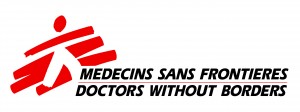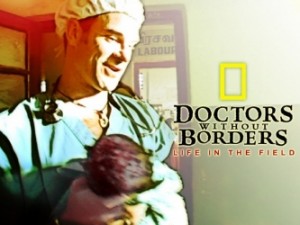 By Scott T. Allison and George R. Goethals
By Scott T. Allison and George R. Goethals
The most heroic people are often those who do their selfless work anonymously. They seek neither credit nor publicity. Guided by humanitarian motives only, these heroes genuinely want to make the world a better place, and they don’t think twice about invisibly making great sacrifices – sometimes even giving their lives – to help save others.
Doctors Without Borders is an organization composed of such heroic people. In doing our research for this blog post, we tried our best to identify the names of the doctors and journalists who founded Doctors Without Borders back in 1971. There is no historical account that we could find. Moreover, there is no listing of the current group of physicians who work without pay, often at great risk, to treat others. All of these heroic individuals prefer to remain anonymous.
Doctors Without Borders is known throughout most of the world by its French name, Médecins Sans Frontières. The organization is composed of doctors worldwide who are committed to bringing quality medical care to people in crisis. Doctors Without Borders was founded on the humanitarian principles of medical ethics and impartiality. The organization is completely neutral and provides medical treatment to people regardless of their race, religion, or political affiliation.  It never takes sides in armed conflicts and provides care on the basis of need alone.
It never takes sides in armed conflicts and provides care on the basis of need alone.
“We find out where the conditions are the worst – the places where others are not going – and that’s where we want to be,” says Nicolas de Torrente, Executive Director of the group. Doctors Without Borders is currently active in more than 60 countries, helping people whose survival is threatened by violence, neglect, or catastrophe. The volunteer physicians face supreme challenges in treating maladies resulting from malnutrition, epidemics, natural disasters, armed conflict, or exclusions from health care.
What exactly are these challenges? Volunteers for the organization have been hit by stray bullets, stepped on mines, and caught epidemic diseases. Sometimes they are attacked or kidnapped for political reasons. In some countries afflicted by warfare, humanitarian aid organizations are judged to be assisting the enemy, especially if an aid mission has been set up exclusively for victims on one side of a conflict.
More than 40 years after being founded, Doctors Without Borders continues to save lives across the globe. Most recently, in Ethiopian refugee camps, volunteers for the organization appear to be turning the tide against severe famine and disease. “When Doctors Without Borders opened the Hilaweyn clinic in August, children were dying of malnutrition at the rate of more than one a day,” said a Voice of America news source. “Two months later, the clinic’s emergency coordinator Aria Danika said they treat 1,000 cases a day, and only one child has died in the past two weeks.”
In 1999, Doctors Without Borders won the Nobel Peace Prize. We can think of no more deserving group of people. In accepting the award, then-president Dr. James Orbinski thanked the Nobel committee for affirming Doctors Without Borders’ pledge “to remain committed to its core principles of volunteerism, impartiality and its belief that every person must be recognized in his or her humanity.”
Below is a youtube clip that describes the heroic work of Doctors Without Borders in greater detail.